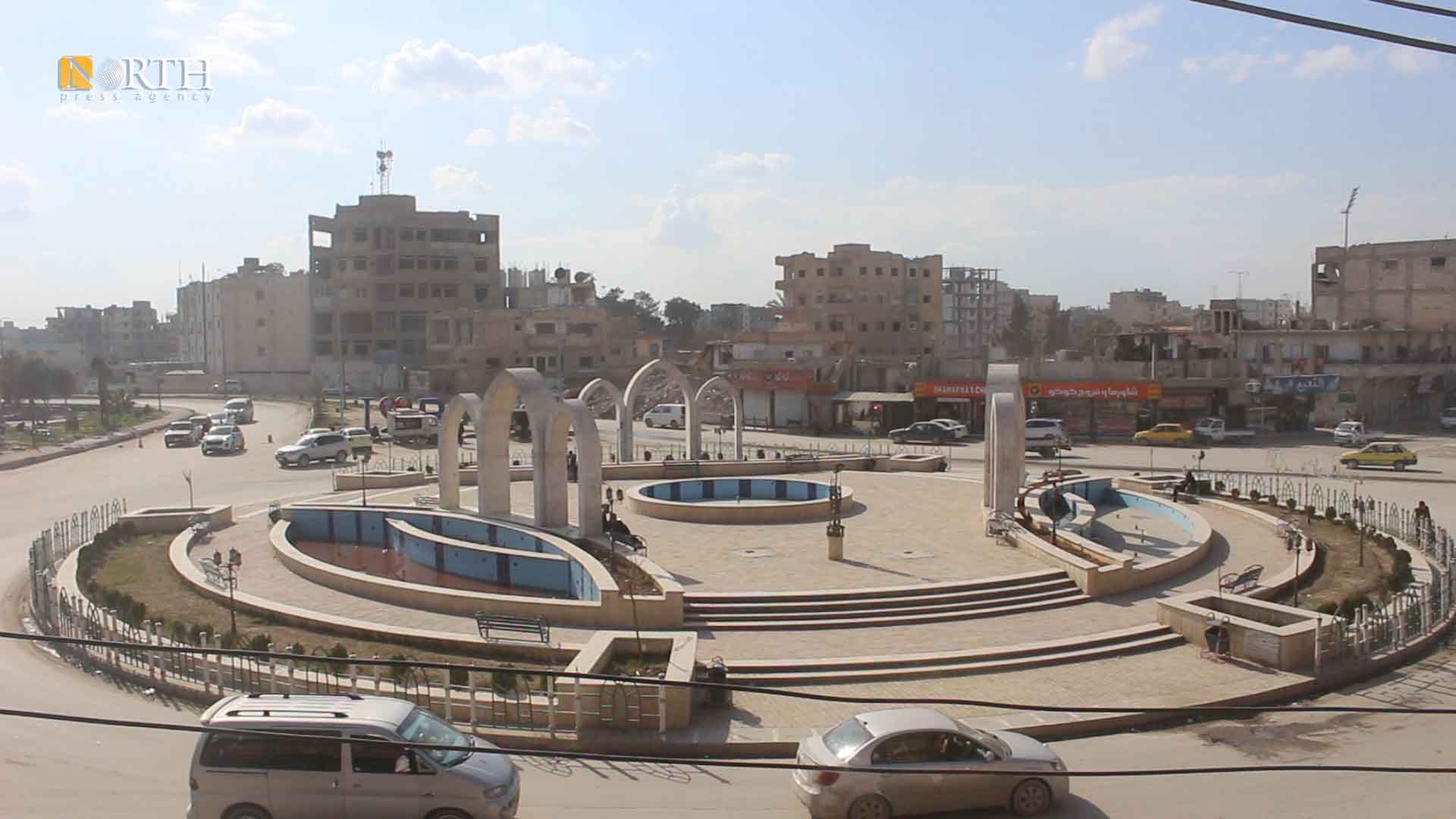RAQQA, Syria (North Press) – Residents in the city of Raqqa, northern Syria, say that US and European sanctions have not prevented Syrian President Bashar Assad from running in the presidential elections, while Syrians suffer from a living crisis due to the collapse of the value of the Syrian currency.
For more than a year, Syrian currency has been witnessing a serious deterioration in its value against the dollar, as the Syrian pound (SYP) recorded the lowest level in its history against foreign currencies after the US dollar exceeded 4,700 Syrian pounds on Thursday.
Elections amidst crisis
The living crisis coincided with the tenth anniversary of the start of protests in Syria against the Syrian government and the President Bashar Assad.
The Syrian government is seeking to hold presidential elections, beginning next April, to reelect Assad, who has ruled the country since 2000.
Fadel Mahmoud, a resident of Raqqa, said, “Bashar Assad and his family live in luxury and they have a lot of money. Sanctions do not harm Bashar Assad and his family, but rather the Syrian people.”
He asked about the relevance of the sanctions if the presidential elections will reelect Assad a month from now.
Mahmoud believes that residents of government-held areas have no choice in voting, while the sanctions lead to a deterioration in living conditions, even in areas east of the Euphrates, due to the collapse of the Syrian pound.
US and European sanctions against individuals and entities in the Syrian government have increased since the middle of 2020.
However, the burden of the living crisis is increasing day after day in government-held areas in particular, and affects the residents of the Autonomous Administration areas in northern and eastern Syria, which deal in Syrian currency.
A few days ago, UN envoy to Syria Geir Pedersen said, “The Syrian tragedy will become one of the darkest chapters in modern history, and the Syrian people are among the biggest victims of this century.”
No near solutions
Arshad Hassan, a daily worker looking for work for in the workers Square in Raqqa, said, “I make between 7000 and 8000 SYP, and that is not enough for my family’s needs. I am a father of nine, and I have two little children who need diapers.”
The worker held the Syrian president responsible for the living crisis in the country, as “all he cares about is holding elections at a time when Syrians are suffering a living crisis.”
The government’s response in its held area was limited to a one-time financial grant of 50,000 SYP (about 10 dollars) for its employees, whose average salary is about 60,000 SYP.
While in the areas held by the Autonomous Administration in North East Syria, an official said Thursday that the administration will increase the salaries of workers in its institutions by between 25 to 30%.
“It seems that the Syrian Central Bank is empty of foreign currencies, so the government has refrained from financing imports,” Khorshid Alika, an academic and researcher specializing in economics and Kurdish affairs, told North Press on Wednesday.
Central Bank reserves decreased from 21 billion dollars to about 700 million dollars in 2016, according to the International Monetary Fund.
Useless sanctions
Amid these conditions, Syrians wonder about the feasibility of the sanctions imposed on the government and its influential people.
Bakri Hassan, a displaced person from the Tel Abyad area, described the sanctions against the Syrian regime as “a farce.”
“They imposed sanctions on Syria; that is useless. They affect us. We don’t have a penny. Look at people; they aren’t able to buy a bread bundle,” Hassan added.
“The traitor won’t win if he runs for the presidential election. He doesn’t have the right to do that. All Western and Arab countries should stand against him.”
The international politics are still unclear regarding the situation in Syria and the fate of the country and its inhabitants.
Hassan believed that the Syrian government and Russia have agreed with each other to hand over areas of northeastern Syria to Turkey.
He said that the countries of the world must prevent the reinstatement of the Syrian president and devise a solution to the crisis.

